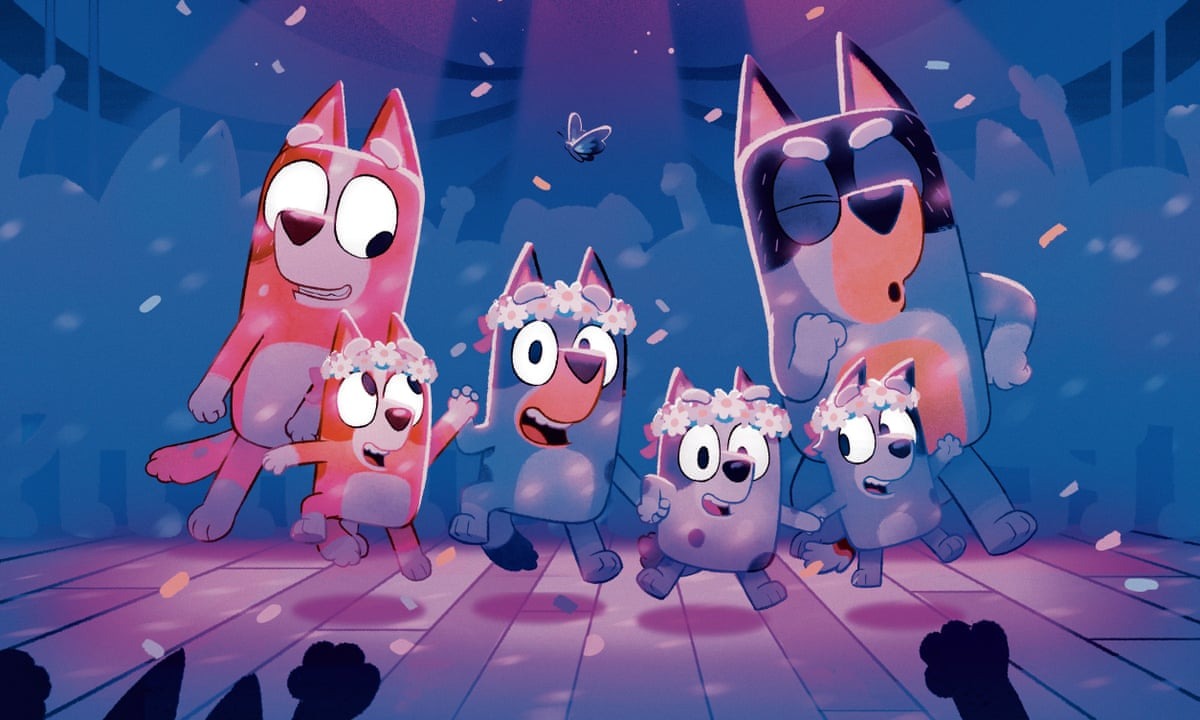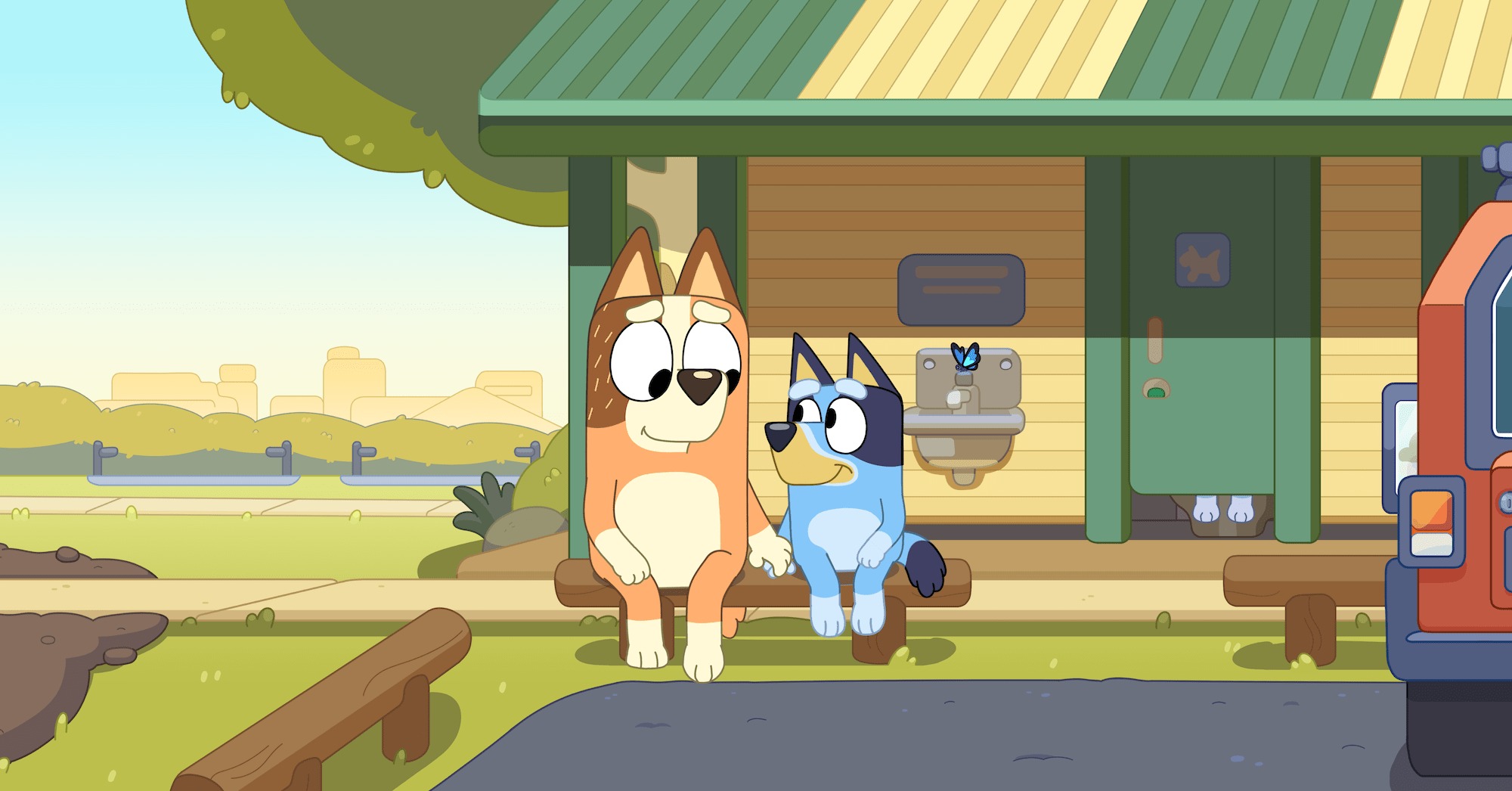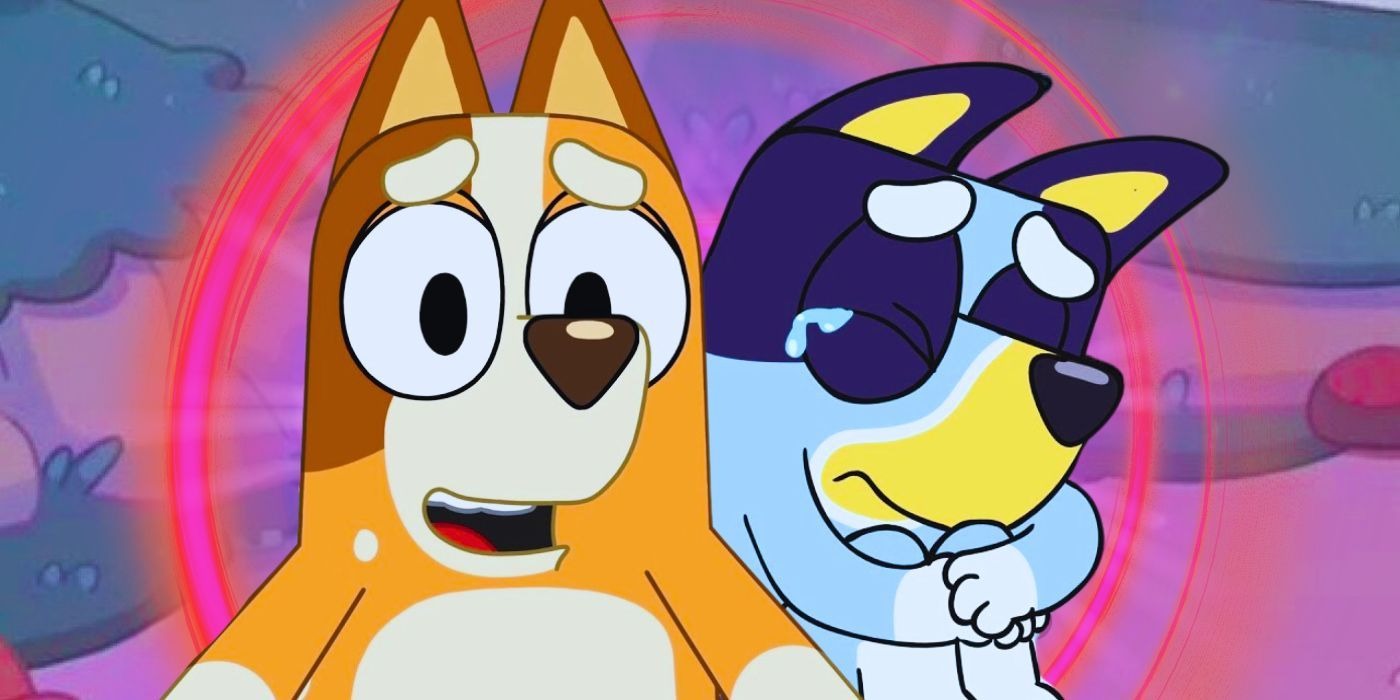I can’t help but feel sympathy for the therapists who must have received countless voicemails on Monday about how, once again, the dogs with square-shaped heads caused grown-ups to cry in devastating dry heaves. April 14 saw the release of “The Sign,” a much-anticipated 28-minute special episode of Bluey.
Typical episodes of the popular Australian show, which captures the hearts of both children and adults, usually last between 8 and 11 minutes. So, “The Sign” might as well have been a full-length film for these adorable characters.

Bluey consistently ranks as one of the most-streamed shows globally, and in a time when children’s entertainment is being sidelined, the show’s analysis of emotional competence, imaginative play, and creativity has made it a must-watch for all ages.
Bluey’s Bold Storytelling Approach
Bluey has never shied away from tackling difficult life topics, but it has always made sure that these stories remain accessible and age-appropriate for young viewers.
Themes like aging grandparents, military deployment, infertility struggles, fear of abandonment, divorce, disabilities, and even death have all been handled with care and empathy. A deep kindness permeates every episode of Bluey, making the show far more than just children’s entertainment.
It has become a source of comfort for many childless adults working on healing their inner child, including me. The creative team behind the series is aware that Bluey has a broader audience than just parents and children.
That’s likely why “The Sign” feels like a specially crafted film for adult viewers, though children will still find it engaging. Unlike the typical children’s media formula, where stories are made with kids in mind, this special speaks to adults while still being accessible to younger audiences.
What was initially advertised as a celebration of the marriage between two dogs turned out to be a profound assessment of existential crises and the complexity of emotions that are often larger than oneself.
The Heeler Family’s Big Change
At the heart of “The Sign” are two major storylines tied to important changes in the Heeler family. Bluey’s Uncle Rad (Bandit’s brother) is marrying Bluey’s godmother, Frisky (Chilli’s longtime best friend), in the Heeler family’s backyard.
However, a large “FOR SALE” sign in the front yard signals a much bigger change: Bandit has taken a higher-paying job, forcing the family to leave Brisbane.
While Bluey’s little sister Bingo and younger cousins Muffin and Socks are thrilled to be flower girls, Bluey struggles to embrace the wedding celebration because she’s facing the reality of leaving the only home she’s ever known, along with her friends and community.
Bandit tries to explain that a better salary will mean more opportunities for the family, but Bluey protests, “I don’t want a better life!” Chilli tries to soothe her by calling the move “an adventure,” but Bluey, now older and more aware of what’s happening, understands the gravity of the situation.
Her classmates also understand, expressing their distress (in the show’s unique way) about her upcoming departure. Bluey’s teacher, Calypso, uses the moment to tell a fable based on the traditional Chinese story 塞翁失马 (“The Farmer”) to help explain that everything happens for a reason, and sometimes happiness and sadness coexist.
When Bluey asks, “Why do stories always have happy endings?” Calypso responds, “Well, I guess ’cause life will give us enough sad ones.” This lesson about uncertainty and patience becomes the heartbeat of the episode.
The Wedding Falls Through
After school, Bluey believes that if she can take down the “For Sale” sign, it will stop the move. During wedding preparations, Frisky decides to help by temporarily removing the sign so it doesn’t ruin the wedding day.
But as she’s about to pull it out, she overhears Rad planning to move the family out West after the wedding, prompting her to call off the wedding and leave abruptly, without telling anyone where she’s going.
Bluey, Bingo, Muffin, and Socks are the only witnesses to the runaway bride and, in a frenzy, tell Chilli, who then takes the girls on a quest around town to find Frisky. Their journey to track Frisky down is chaotic. For the first time, Bluey sits in the front seat because the younger girls need the back seats with car seats.
This results in Chilli getting pulled over by a cop (played by Joel Edgerton), triggering a series of mishaps, including juice spills, urgent bathroom breaks, and a butterfly that causes panic among the girls.
At the same time, more adult-level conversations play out, which might be lost on younger viewers but are likely to resonate with the adults. Rad admits to Chilli that he didn’t talk to Frisky about moving out West because, as he admits, “Clearly, I’m not very good at this stuff.”
Chilli soon realizes that Frisky must be headed to their old lookout spot, a place they visited as teenagers “to… um… think.”
Bluey Takes on More Grown-Up Realities
Eventually, they track Frisky down, and Bluey, now more mature, asks her if she plans to come back for the wedding. Frisky, overwhelmed, lashes out, admitting that she’s upset about the family moving away and that Rad had made plans without consulting her.
She also confesses that she now doubts the wedding itself. Normally, these tough, honest conversations would be shielded from young children, but Bluey, growing older, is starting to witness these adult discussions.
In a vulnerable moment, Chilli admits to Frisky that she doesn’t want to move and only told Bluey it could be an adventure to help her cope. The scene shows the importance of being transparent with children about one’s feelings, as it can validate their emotions and help them understand complex situations.
The Butterfly Effect and Life’s Unpredictable Path
Calypso’s fable about “The Farmer” is a metaphor for the butterfly effect, where we can’t always determine whether an event is good or bad until we see its long-term impact. This theme runs through “The Sign,” which itself is a large-scale butterfly effect.
Rad’s decision to move with Frisky leads to the wedding being called off, which inspires the girls to search for her. Bluey sitting in the front seat leads to the car being pulled over by the same cop who had previously pulled over Frisky, sending the group toward the juice shop.
At the shop, Bluey finds a lucky coin, and the girls all get juice. Later, Muffin spills her drink, which causes another stop, leading Socks to spot Frisky’s car.
The Full Circle of Connections
At the lookout, the girls try to use a coin-operated binocular machine but can’t because they have no money. Bluey uses the coin she found at the juice shop, but it gets stuck, and they decide to leave the coin there. As they head back home, Frisky and Rad’s wedding seems to be back on track.
The following day, the dogs who were interested in buying the Heeler house came across the coin at the lookout and used it to view the area. They then change their minds and buy another house with a pool instead, setting everything in motion for a new turn in the story.
The Emotional Closure and the Cycle of Life
“The Sign” also ties up multiple storylines from previous episodes, delivering emotional moments that tug at the heartstrings. Bucky Dunstan, the smooth-talking real estate agent, makes his return, and fans might recognize him from the “Dragon” episode, where he made fun of Bandit’s drawing skills, stifling his artistic dreams.

Flappy the butterfly from the “Slide” episode makes an appearance, as do Greenie the balloon from “Mum School” and Winton’s house from “Helicopter.” These callbacks give the episode a sense of closure and continuity.
Bluey and Bingo’s grandparents are seen flossing at the wedding, a throwback to the existential crisis the girls had in “Old Dogs Can Learn New Tricks.” Bandit’s distraction in the “Stick Bird” episode likely marks the time when he received the job offer that led to the family’s move.
And, of course, the most poignant reveal is that Chili’s sister, Brandy (Rose Byrne), who had been struggling with infertility in “Onesie,” shows up pregnant at the wedding. Yes, this moment made me tear up over the pregnancy of a cartoon dog.
The True Message of the Special
When Bandit receives the call that the house sale has fallen through, it serves as a sign that the best life for the Heeler family is not defined by wealth but by staying where they are.
This isn’t just an episode about adapting to change; it’s a lesson about handling big emotions and understanding that some decisions are far more complicated than children can grasp.
The episode teaches that sometimes, the best thing for children is to be emotionally available and honest with them about what’s going on.
A Lesson for Parents and Children Alike
Bandit could have gone ahead with the sale of the house, but he didn’t because he realized that moving wasn’t the right choice. Sometimes, we need to pay attention to the little signs in life to help guide us to the right decision.
The episode beautifully conveys that sometimes, the right decision is the one that prioritizes the well-being and happiness of our loved ones. “The Sign” is not just about a literal sign but about recognizing and listening to those quiet signs that life presents to us.



